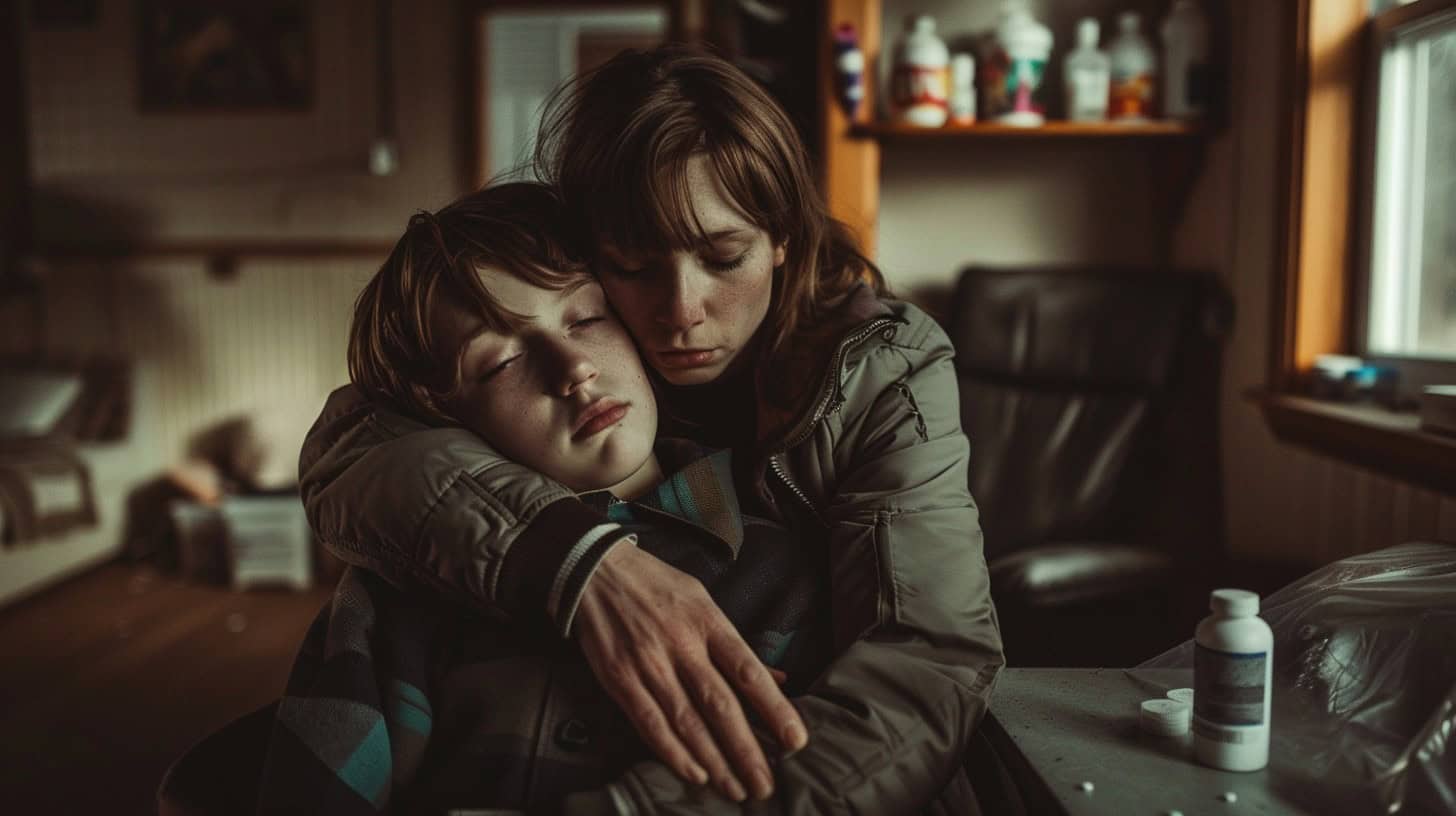Feeling lost about what to do with your drug-dependent son is a tough spot. Over 11% of young people’s passing from overdose hits hard. This article offers hope and steps for dealing with this pain.
Hang tight, help’s on the way.
Key Takeaways
Understanding your son’s addiction is the first step in dealing with his drug use. Addiction changes his brain, making him crave drugs more than anything else.
Setting boundaries and practicing detachment helps families cope with a loved one’s addiction. It involves stopping enabling behavior and allowing your son to face the consequences of his actions.
Seeking professional help from therapists or counselors can make a big difference in your son’s recovery journey. These experts use talk therapy, psychotherapy, and sometimes medication-assisted healing to address both mental health conditions and substance abuse issues.
An intervention may be necessary when your son’s actions threaten harm to himself or others. Professional interventionists can guide you through planning an effective intervention that opens your son’s eyes without pushing him away.
Unconditional love plays a crucial role in supporting your child through recovery. Celebrate small victories together while being patient and strong during setbacks, showing compassion instead of judgment to foster trust.
Table of Contents
Understanding the Struggles of Addiction
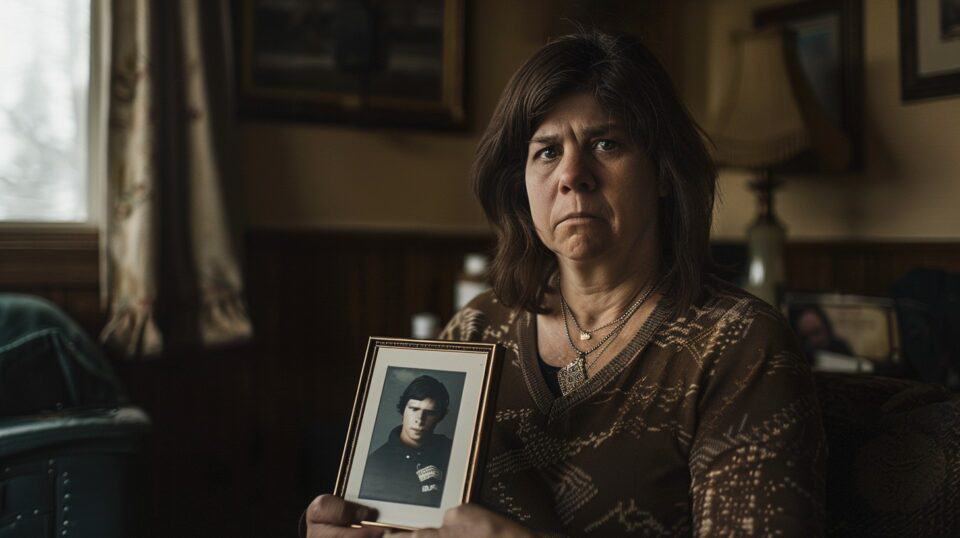
Understanding addiction is like trying to hold water in your hands; it’s complex and slips through the cracks. It wraps its fingers not just around the person who uses substances but hugs the whole family tight, leaving everyone gasping for air.
The Nature of Drug Addiction
Drug addiction grabs hold of the brain like a vice. It’s a tough enemy, changing how we think and act. This disease makes people crave drugs more than anything else, even when they know it hurts them and their families.
Every day, kids as young as 15 fall into this trap, becoming part of a sad statistic: over 11% of overdose deaths involve young adults.
Addiction is not just using drugs to escape problems; it’s a relentless force that can take over your life.
As someone who has fought this battle alongside loved ones, I’ve seen up close how addiction twists minds and breaks hearts. People with addiction aren’t chasing a high for fun—they’re often trying to outrun pain or mental health issues like anxiety or depression.
The journey out of addiction is steep, filled with therapy sessions, support groups for both you and them, and maybe even visits to drug rehab centers. Yet, despite the setbacks and heartaches, hope remains alive in every small step towards recovery.
The Impact of Addiction on the Family
Living with a family member who faces substance use disorder throws the whole house into chaos. Mornings start with worry instead of breakfast. Nights end in arguments, not stories.
My journey echoes many out there, showing how addiction doesn’t just latch onto one person; it spreads like a vine, wrapping around everyone close by. Siblings feel forgotten as parents pour all their energy into helping their drug-addicted son.
Bonds strain and sometimes break under the weight of repeated cycles of hope and despair.
According to Harmony Ridge Recovery Center, families often find themselves walking on eggshells, trying not to trigger another episode while dealing with their emotional distress. I saw this in my own home – moments of peace punctuated by storms of turmoil.
We juggled counseling for him and therapy for us, swinging between feelings of guilt and relief whenever we found moments away from the chaos. Addiction reshapes families from units of support into co-dependent networks battling an invisible enemy together but feeling utterly alone in the fight.
Recognizing the Signs of Drug Addiction

Spotting the signs of drug addiction in your son is like trying to find a needle in a haystack. One day he’s fine, and suddenly, mood swings and midnight cravings for snacks turn into something way more serious.
The Emotional Toll of Having a Drug Addict Son
Having a son caught in the grip of drug use shakes your world. It’s like watching them in a glass box, struggling to breathe while you’re outside, unable to break through. You see the joy and light fade from their eyes, replaced by a desperation that grips your heart with fear and sorrow.
Nights become sleepless stretches of worry. Will he come home? Is he safe? Each overdose statistic whispers his name, making your heart race.
Family is not an important thing. It’s everything. This quote rings true, but feels heavy when addiction enters the scene. You love them more than words can say, yet there’s this barrier you can’t cross—addiction acts like an invisible wall between you and your child. Emotions run high; guilt often takes center stage as you wonder where things went wrong. Was it something I did? Could I have done more? But here’s what many don’t talk about: amidst this turmoil lies strength—yours and theirs. Through seeking professional help, setting boundaries for healthier living, and offering emotional support without enabling harmful behaviors, hope glimmers faintly on the horizon.
The Cycle of Hope and Despair
Dealing with a child’s addiction throws parents onto an emotional rollercoaster. One day, you’re soaring on the high of your son’s sobriety or progress in therapy. The next, you crash into despair when relapse wipes out all those gains.
This cycle isn’t just tough; it drains your spirit and tests your resilience like nothing else.
I’ve walked this path myself. Watching my own son fight substance abuse showed me the raw truth of hope and despair. We celebrated small victories—each day he stayed clean, every positive step towards recovery felt like a miracle.
But then, setbacks hit hard, shattering that fragile hope into pieces. It’s a battle where emotional armor becomes as crucial as love and support networks are for soldiers in the trenches.
The Concept of Letting Go

Letting go isn’t giving up; it’s finding a new way to love. It means setting boundaries that keep everyone safe and healthy.
Understanding What ‘Giving Up’ Really Means
Giving up on your drug addict son might sound harsh. Yet, it’s not about throwing in the towel or turning your back on them. It’s about accepting you can’t force their recovery. You’ve poured love, time, and maybe even resources into helping them fight addiction.
But when they choose drugs over help repeatedly, stepping back is okay. This doesn’t mean you stop loving them; you’re just recognizing your limits.
You can lead a horse to water, but you can’t make it drink.
From my own journey with a loved one’s addiction, I learned letting go meant giving him room to face his demons – without me shielding him from consequences. It was tough love in action: setting boundaries for my wellbeing while leaving the door open for when he was ready to seek treatment for substance abuse or alcoholism seriously.
The Role of Boundaries in Letting Go
Setting limits goes hand in hand with understanding what “giving up” means. Think of boundaries like a fence around your heart; they protect you while letting your son find his own path to recovery.
My mom battled addiction too. As she got older, the search for insurance plans for seniors became my reality. This journey taught me that setting boundaries wasn’t about pushing her away; it was about keeping us both safe.
Boundaries are tough love in action. They tell your son, “I care about you, but I won’t let your addiction harm our family anymore.” It’s a clear message: change is up to him now. By stepping back, you give him room to face his addiction head-on, making it clear that help is there when he’s ready to take it seriously.
Balancing Love and Letting Go
Loving a child with addiction is like walking a tightrope. On one side, there’s the endless love you have for them. On the other, the need to let go for their own good. It’s not easy deciding to step back.
I had to learn this the hard way with my son. The day came when I realized loving him meant setting boundaries and sometimes saying no. It was tough but necessary for his journey toward sobriety.
Letting go doesn’t mean giving up on them. Instead, it offers room for personal growth—for both of you. In our case, it opened doors to professional counselors and sober living homes that were crucial steps in his recovery process.
We also found strength in support groups, where we learned from others who walked this path before us. Balancing encouragement with detachment allowed him space to battle his demons and eventually find his footing in a healthier lifestyle.
The Role of Detachment in Addiction Recovery
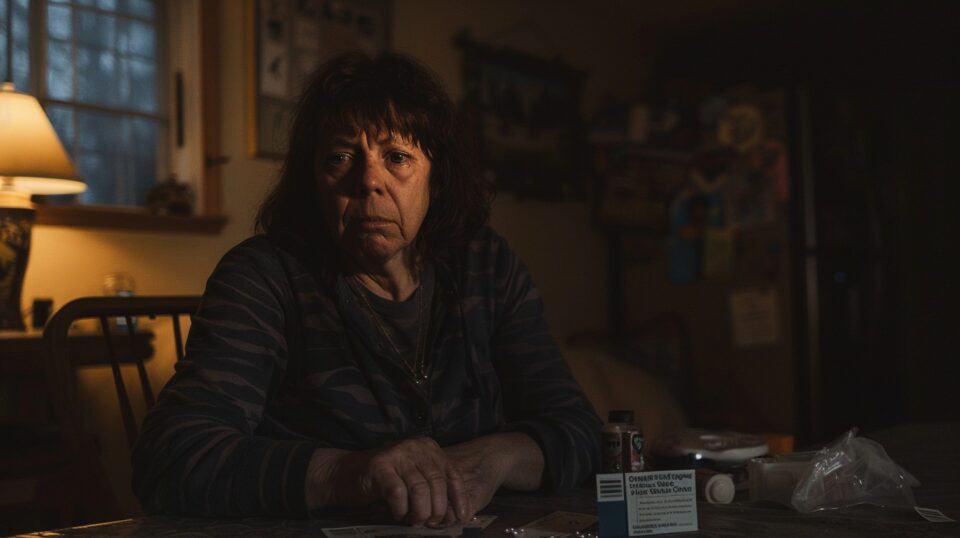
Detaching with love helps families step back and let their loved one face the consequences of addiction. This move can spark a fire in your son’s heart to seek help and start his journey towards recovery.
The Process of Detachment
Detachment sounds like a cold word, but in the world of addiction recovery, it’s a warm act of love. It allows your son to face the consequences of his actions and encourages growth.
- Realize detachment is not abandonment. You’re not leaving your son in his time of need. Instead, you’re setting boundaries that show you care for him and yourself.
- Talk things out with someone who’s been there. Whether it’s a friend or an addiction counselor, sharing your feelings can lighten your load.
- Learn about addiction. Addiction treatment centers often offer resources for families to understand what their loved one is going through.
- Set clear boundaries with your son. It could be anything from no substance-abused items in the house to seeking professional help if he wants to live at home.
- Engage in self-care activities. Taking care of yourself isn’t selfish; it’s essential. Whether it’s joining a support group or picking up a hobby, do something that makes you happy.
- Encourage healthy lifestyle choices together as a family, but make it clear that participation is his choice.
- Know when to ask for outside help from professionals, whether it’s family therapy sessions or individual therapy for your son.
- Practice unconditional love while maintaining boundaries. Letting him know you love him even when setting rules is crucial.
- Focus on empowering yourself too; boosting your own confidence helps manage stress better.
- Let go of guilt and blame; neither helps you nor your child in the long run.
- Show empathy and compassion without enabling negative behaviors; understanding doesn’t mean accepting harmful actions.
Remember, setting these boundaries doesn’t push your son away, but rather invites him into a space where healing can begin – for both of you.
Now let’s explore how recognizing signs early can make all the difference in taking action toward recovery and healing.
When to Consider Intervention
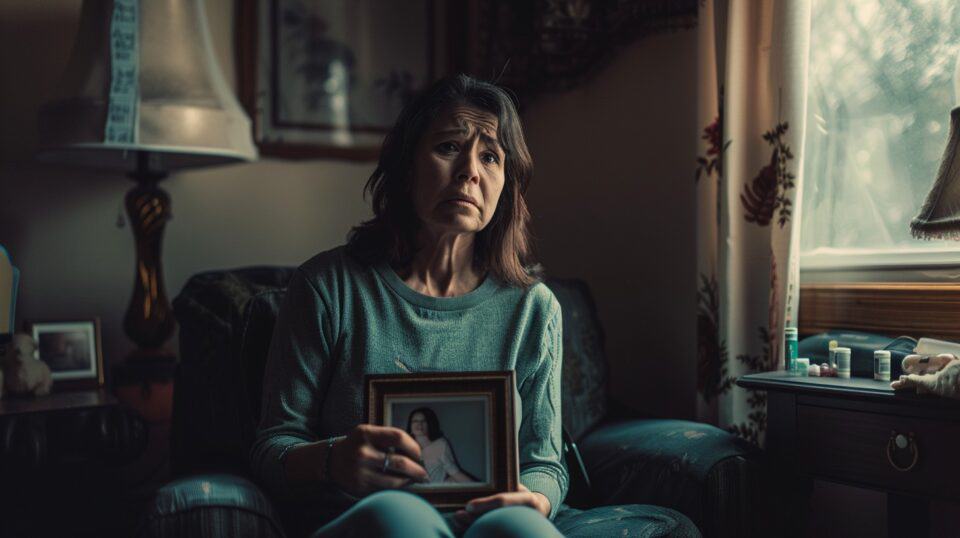
You might reach a point where your son’s safety and health are on the line. This is usually when his actions threaten harm to himself or others around him. Think about it like hitting a red button during an emergency.
It’s that moment you realize waiting longer could mean more damage than good. You’ve tried talking, setting boundaries, and maybe even sought advice from friends or family. But things haven’t changed much, or they’ve gotten worse.
I remember the day we decided to call for professional help for our son. It felt like admitting defeat at first, but it was actually a step towards hope. We reached out to addiction counselors and interventionists who specialize in substance abuse treatment.
Their expertise made a huge difference, guiding us through planning an effective intervention that opened our son’s eyes to his situation without pushing him further away. An intervention isn’t giving up; it’s showing how much you care by taking serious steps to pull them back from the edge.
Seeking Professional Help
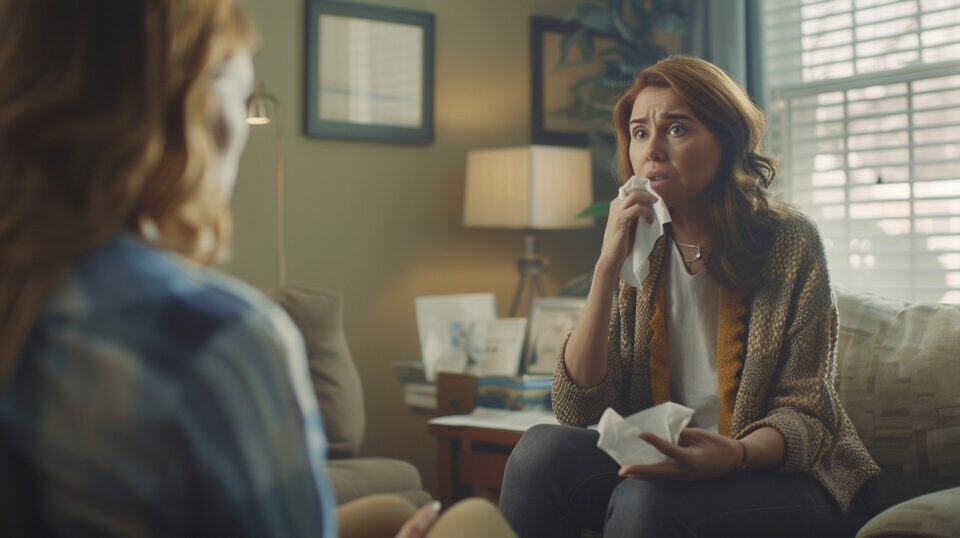
Seeking help from experts can be a game-changer in your son’s recovery journey. Professionals like therapists and counselors know how to deal with drug addiction treatment. They provide talk therapy, psychotherapy, and sometimes medication-assisted healing.
These methods address the root causes of addiction, helping your child tackle both mental health conditions and substance abuse issues.
Harmony Ridge offers support for families struggling with these challenges. Getting help here can mean tapping into residential care or joining groups that understand what you’re going through.
This step is crucial for both you and your son to heal emotionally and find a path forward together.
The Power of Unconditional Love
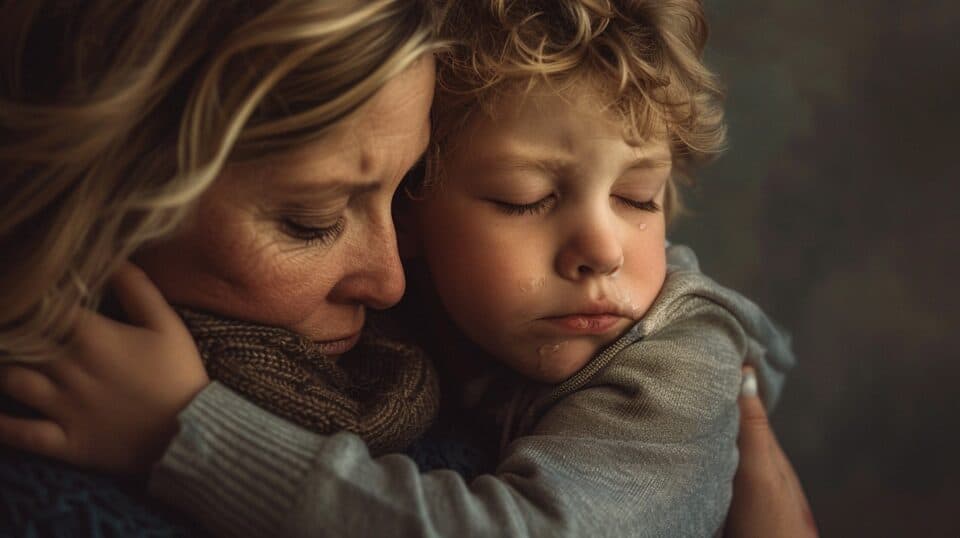
Unconditional love acts like a beacon of hope in the stormy sea of addiction. It’s this kind of love that lights up the darkest corners and guides your son back to shore. Picture unconditional love as the sun; it doesn’t pick which flowers to shine on—it just shines.
This warmth can move mountains, breaking through barriers of denial and resistance. Your unwavering support shows him he’s not walking alone, no matter how rocky the path gets.
This journey demands patience and strength from you as parents. Celebrate the small victories together and keep faith during setbacks. Showing compassion instead of judgment can foster trust, laying down bricks on his road to recovery one at a time.
With every step forward, remind him that mistakes don’t define us; it’s how we rise after falling that truly matters. In essence, unconditional love isn’t about enabling but empowering—giving your child wings to fly while being their safety net when they stumble or fall.
FAQs About Giving Up on a Drug Addicted Son
When is it time to seek help for my son’s addiction?
The moment you notice the signs – whether it’s bottles hidden under the bed or he’s acting like a bear with a sore head more often than not, it’s time. Don’t wait for rock bottom; drug and alcohol abuse treatment centers are your best bet early on.
How do I talk to my son about his substance use without pushing him away?
It’s like walking on eggshells, isn’t it? Start by listening more than you speak. Make sure he knows you’re there for him, not against him. It’s tough but keep the judgment out of your voice – think of it as trying to thread a needle in dim light: frustrating but possible.
Can residential treatment really make a difference for someone with dual diagnosis?
Absolutely! Imagine trying to play football with one leg tied up; that’s what tackling addiction feels like when there’s also a mental illness in the mix. Residential treatment offers both medication-assisted therapy and emotional support, making recovery more reachable.
What if my son relapses after rehab?
Think of recovery as learning to ride a bike – sometimes, you fall off before finally getting the hang of it. Relapse doesn’t mean failure; it means regrouping and pedaling harder next time, with perhaps more peer support or mindfulness techniques added into daily routines.
How can I stop enabling my son’s addictive behaviors?
First off, kudos for recognizing this pattern – that alone is huge! Now comes the tricky part: setting boundaries thicker than grandma’s oatmeal cookies, and sticking to them even when every fiber of your being wants to cave in.
Is there hope, even if things seem hopeless now?
Hope is stubborn; no matter how deep down you bury it under layers of worry and despair, it has a way of popping back up like daisies in springtime. With patience, professional guidance from licensed counselors, and heaps of love (sprinkled with some tough love), healing is within reach.
